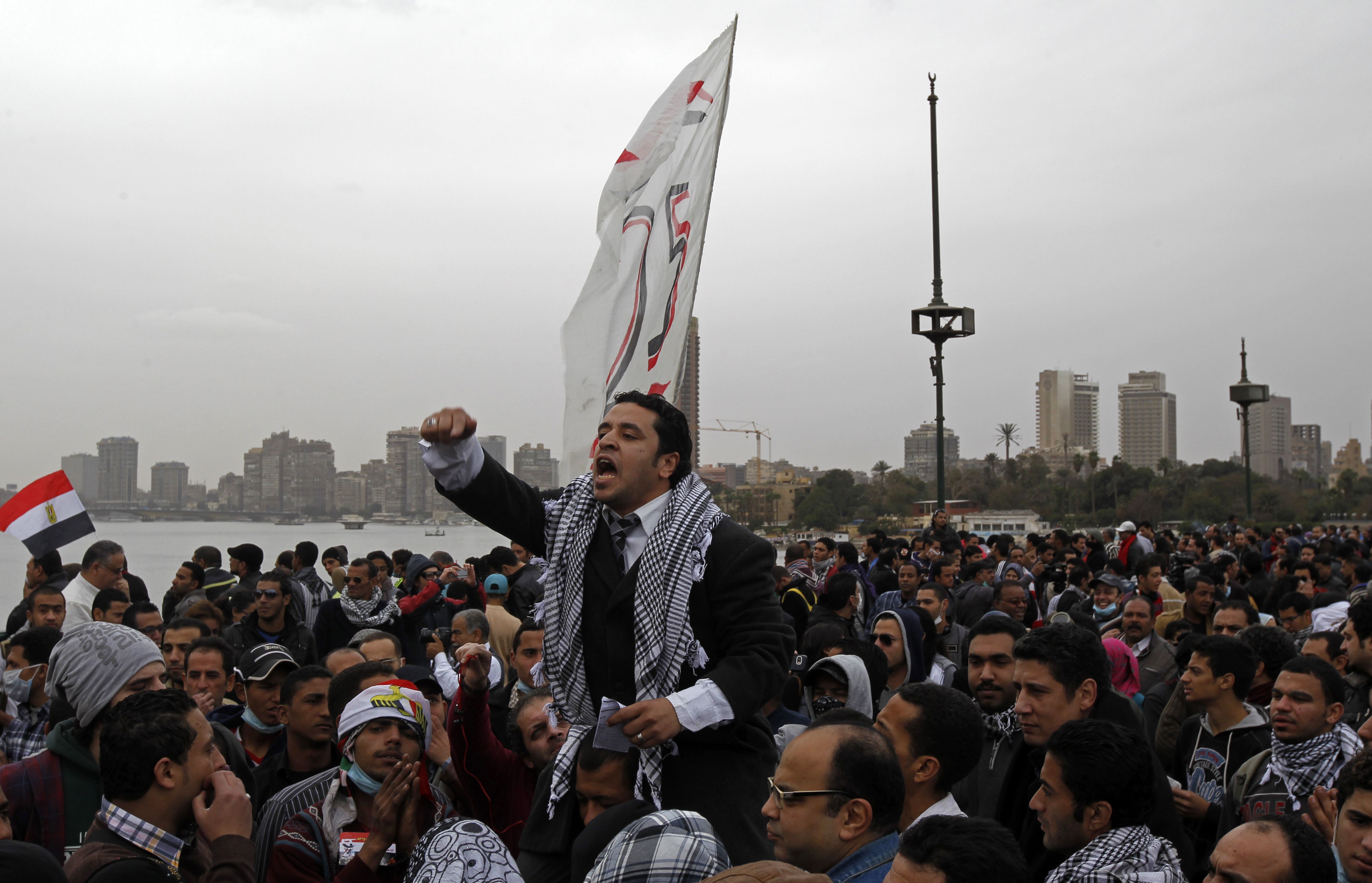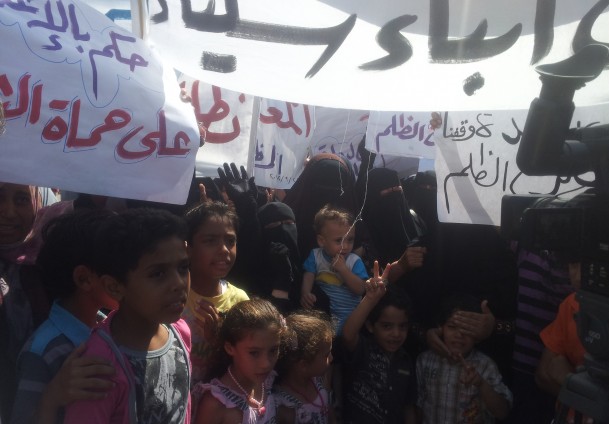Parliament is set to cast final votes on the Protest Law amendments in an upcoming session, after it postponed the voting during Monday’s general session and only decided on preliminary approval.
The voting session over the amendments requires a quorum of two-thirds of the members of parliament (MPs) to be present, since the law is considered one of the Constitution’s complementary laws.
Controversy stirred due to the parliament administration’s stance to only discuss the government amendment, which only focuses on Article 10 and not the draft law submitted by other MPs.
MP Gamal El-Sherif, who is a member in the 25-30 coalition—the opposition voice in parliament—told Daily News Egypt, “During Monday’s session, MPs were divided over some suggested amendments for additional articles—particularly those that stipulate prison sentences for protestors—with some MPs wanting to limit the discussion to only amending Article 10.”
MPs Tarek El-Khouly and Akram Kourtam were among members who expressed their rejection to the parliament’s stance, especially since they were the only two members who submitted suggestions regarding amendments to some of the law’s articles, he added.
Commenting on the parliament focusing only on government amendments and skipping others, deputy of the Constitutional and Legislation Affairs Committee Ahmed El-Sherif told Daily News Egypt that parliament was keen to discuss the government amendments since it only dealt with Article 10, which the Constitutional Court ordered parliament to look into.
In December, the Constitutional Court declared most of the articles of the law constitutional, although Article 10 was deemed unconstitutional, with the court suggesting an amendment and recommending that parliament discusses it.
Article 10 of the law allowed the Minister of Interior or the concerned security director to cancel, postpone, or modify the route of a protest if they had acquired “serious information or evidence that the assembly would threaten national peace and security.”
The court ruling over the article recommended improving it and forbidding the ministry from banning or cancelling the protest; however stating that individuals should still notify the ministry.
Meanwhile, the government’s suggestion for Article 10 says that the Ministry of Interior has to present a request to a judge regarding cancelling or postponing a demonstration, moving it to another place, or changing its path. The judge then has to immediately issue a decision and an explanation for it.
The suggestion also included that individuals wishing to protest have the right to appeal the decision in accordance with the law. Article 10 is responsible for regulating ways of notifying the interior ministry about any scheduled protest.
A number of MPs, including Khaled Youssef, stated that parliament should focus more on discussing laws related to prison sentences and finding possible amendments for them.
Recently in Egypt, dozens have been arrested and are facing harsh prison sentences due to the regulations of the Protest Law.
“The law is unfair and has put thousands of youth behind bars,” Youssef said.
Article 7 of the law states that individuals participating in protests are not allowed to harm state security, hinder public or state interests, or prevent public transportation or the work of state institutions.
Individuals who commit any of the aforementioned crimes would be punished according to Article 19 of the law, which stipulates prison sentences from one to five years, as well as a minimum fine of EGP 50,000 that should not exceed EGP 100,000.
El-Khouly said the law was enforced during 2013, when the country was facing a huge wave terrorism by the outlawed Muslim Brotherhood, therefore requiring such a law to secure the state; however, now the situation is different, as the country has been more stable, allowing for the law to be reconsidered.
The MP had submitted his draft law to the parliament administration even before the Constitutional Court declaration, but it was rejected.
El-Khouly commented on the rejection of his draft, saying that this violates two rights: his right as an MP whose suggestion should be considered and giving parliament a chance to review the law and improve it for the people.
He said that he submitted a report to the Constitutional and Legislation Affairs Committee regarding amendments to certain articles of the law, including articles 10, 12, 13, 14, 18, 19, and 20. These articles are related to imprisonment, public gatherings, places of demonstration, and the use of force in unauthorised demonstrations.
Kourtam’s draft law was submitted to parliament in January and focused on 11 articles.
He asserted that the Protest Law requires a number of modifications, especially under President Al-Sisi’s approach in granting presidential amnesty for prisoners arrested during demonstrations.
The Protest Law was issued in late November 2013 by interim president Adly Mansour. The legislation was drafted to regulate public assembly, processions, and peaceful demonstrations, and it aimed at putting an end to the continuous protests arranged at that time by brotherhood supporters.
The Protest Law has been condemned by multiple international and local NGOs, as they viewed it as a violation of the right of freedom of expression and the constitutional articles confirming that right.



